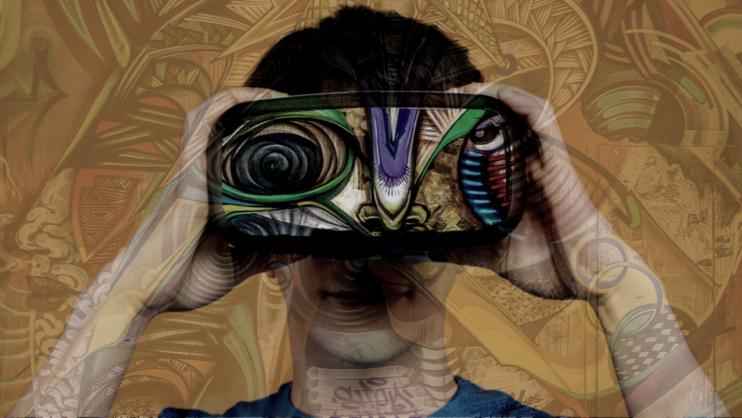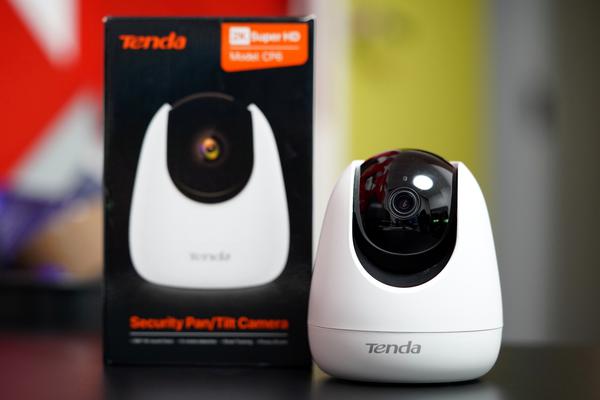Internet of things and bodies, artificially intelligent robotics and 5G - transhumanism in bloom
Historical experience shows that some changes occur faster than reactions to them. This is especially true in the technological area. It is no different in the case of transhumanism, which is progressing before our eyes. Homo Cyberneticus is the master of his limitations or the slave of technological corporations? The matter is not that simple and, despite its technical nature, there are a lot of theories and considerations in it.
Cybernetics and robotics
Robotic technology is a combination of various types of research in the field of electrical engineering, mechanics and computer science, which ultimately is to create robots that facilitate people's functioning or help them in areas exceeding human competence.
Cybernetics, in turn, is a set of sciences about the transfer and management of information designed to control systems in man, society or machines. Sounds familiar? These areas interpenetrate with each other, but also with our lives, providing us with newer and bolder solutions.
From factory machines, to prosthetics and implants, to Elon Musk implanting sensory chips in a pig's brain. Today, robots fly into space, play games with us, and even have sex with us. The progress of digitization and automation is slowly blurring the boundaries between what is human and what is digital. Although why shouldn't machines be human? After all, if according to religious beliefs we are part of the divine matter, why shouldn't the robot as our child's creation belong to the human matter, which it is supposed to serve? The theme of religion is not without significance here, given the fact that transhumanism is perceived by many as a cult.
Due to the blurring of boundaries between the worlds, it is worth looking at whether something is human or not, it is still an idea of perception at the level of abstraction. Abstraction, idea, feelings are most often attributed to the spiritual/intellectual element we have and this is what separates us from machines whose operation is based on computing power determining the operation of the system and algorithms.
Transhumanism, a step closer to Robocop
The concept of transhumanism is an intellectual, cultural and political movement that points to science and technology as the necessary point to overcome human weaknesses and limitations. For the most part, however, we associate it with cyborgs known from science fiction, such as the now famous Robocop. What is this film about? - A police officer dies on duty. He is brought back to life as a cyborg whose task is to fight crime.
Although in fact transhumanism is a broader concept than cyborg people, the plot of the film shows two important issues that happen on the human-machine plane. People and their lives are the first plane. The use of technology in the service of saving human life or improving its conditions through bodily intervention can cause elation of reverie and delight over the possibilities of technology.
On the other hand, however, where there are opportunities, there are also threats, where there is good, there must also be evil, and even if we accept that dualism is a really overrated concept, and it's all a matter of simple subjectivism, yes we cannot take away the freedom of perception from others (which Big Tech is still working on by algorithmizing access to information and closing us in information bubbles). The story of a policeman with enhanced capabilities, able to help people and, above all, a man who survived thanks to technology, intertwines here with the story of a huge and overpowering corporation.
In the latest version from 2014, we are dealing with OmniCorp, the equivalent of our bigtech, which disturbs our lives and wants to strip it of as much control as possible, because it gives power, and power gives profits. All Robocops are a vision of corruption, the influence of the media on our opinions and a picture of how tech giants put pressure on our daily lives. Another thing that sounds familiar, right?
Artificial intelligence smarter than biology?
Intelligence is like life - it's hard to define what it really is. We intuitively feel what it can be, but measuring it is at least debatable. Scientists have long disproved IQ tests as determinants of human intelligence. Although, yes, they set them as a form to check certain functional practices of our brain, which explains many nuances related to human races and their supposed racial destiny. The concept of black people as workers, white people as conjurers, and yellow people as technological gods does not take into account the cultural and socio-demographic context that comes with it.

Coming back to the question, is it possible to determine whether an artificial intelligence counterpart is smarter than us? This question is inherently flawed. Artificial intelligence is just different, but inaccessible to the human brain, which is not able to analyze at such a level as it. However, I will not put a period here. I remember reading the MIT Technology Review article on E. coli and the computing power of one teaspoonful of these bacteria, which has more memory in its DNA than the entire internet! Blockchain technology, which with the current state of the equipment is possible to overcome by the computing power of half the Internet - with a teaspoon of bacteria it would not be able to cope! It follows from this that artificial intelligence is able to perform such huge calculations, because its systems are focused only on this activity. At a time when people record much more, which does not allow them to reach the level of specialized machines, although only in this narrow scope and it does not apply to everyone.
Generally, as the Ask Physics portal points out, the human brain has a hundred billion neurons, and scientists cannot even tame an E. coli colony or study the workings of a worm brain, which has only 302 neurons, hence the popular saying: "if If the human brain was so simple we could understand it, we'd be so stupid we wouldn't understand it anyway. With all firmness and seriousness, it can be said that each of these carriers of intelligence has its limitations, both biological and machine ones, but in no way are machines smarter than us, they just have specialized algorithms that are not as powerful as ours anyway. brain.
IoT, IoB, or IoE - Internet of Everything!
The Internet of Things is no longer a technological novelty. In some households, smart systems enjoy a great reputation, improving the comfort of their users' lives - if they work.
There was a craze on the internet and the craze of bodies was not forgotten either. It turns out that this holds true for both of these conjunctions. The Internet of bodies is another leap in smart matter. These are highly technologically advanced devices that, by placing them on or inside the body, are able to simultaneously generate streams of data on our behavior, our physiology, and even our DNA.
These technologies are supposed to improve the functioning of our bodies. Lenses implanted in the eye and equipped with a camera can improve vision. Although Artur Kurasiński also saw a use for them in MR technologies. As far as lenses are concerned, we can also distinguish smart contact lenses that measure blood glucose levels without puncturing. IoB also includes a cochlear implant with a built-in hearing-restoring processor, or electronic tablets with Bluetooth technology that monitor drug dosage and vital functions. Opponents of technology see this as the greatest threat, but more on that later.
The role of 5G in the transhumanist process
5G network is a new version of the network with higher capacity that will revolutionize the market of technology-related services. Its use, according to specialists, is to help improve security systems, production and logistics processes, support the operation of modern devices and leverage the operation of Smart Cities, which are based on the Internet of Things.
– New mission-critical applications such as autonomous vehicles, smart cities, and patient health monitoring will make network reliability critical to protecting people and the economy. Meanwhile, the exponential growth in traffic volume and number of connected devices will significantly increase the scope and scale of potential attacks,” said Gunter Reiss, vice president, A10 Networks.
The introduction of a network with such a capacity can accelerate transhumanist aspirations, the question is whether they will push us towards utopia or dystopia, or maybe nowhere? After all, “transhumanists do not believe in human dignity or God!”
Transhumanists or a sect?
– In the anthropology of transhumanists there is no place for human freedom and dignity. Free will is supposed to be only an illusion and invention of philosophers, and human dignity is rejected as unjustified speciesism. Transhumanist thinking is the essence of Enlightenment thinking. It is a vision in which man controls everything around, nature, and himself - his own life and health. In a sense, this concept has a quasi-religious character, as it is based on the dogmas of Darwinism and the belief that it is man's duty to control the processes of evolution, which was written, for example, by Julian Huxley, one of the first propagators of transhumanism, who directly called this trend a new form of faith - we read in the lead of the Jagiellonian Club article. According to Dr. Marta Soniewicka - the common denominator for the multitude of understanding transhumanist concepts is understanding them through the process of transcending, not human nature, because its existence is often rejected by transhumanists, but rather the human condition - she says.
Will Homo Cyberneticus be a free man?
Freedom, another issue of psychological and philosophical nature. What determines freedom? Freedom of self-determination, freedom of thought, freedom towards the ideas we want to follow? We ask ourselves whether a man connected to technology will be free, but aren't we already such people? We are slaves to the systems we live in. A man without a phone can be compared to a man without a hand, and even this comparison would be risky, in favor of the phone, unfortunately. The telephone is an extension of our communication, finances, our operational command center for business and private relations, a window to the world and, by the way, a micro-prison.
Technology gives us many possibilities, but we do not have complete control over it. Natalia Hatalska even wrote that in part she dictates the conditions to us (technology of course, not Natalia). Returning to the hand, technology could solve the problem of its lack. Already today we have advanced possibilities of transplantation and implantation of organs, both living and artificial ones.
It is worth looking at technology as a friend, not our enemy. Pure mutualism that strives for human convenience and the advancement of technology itself. Although it takes away a lot of opportunities, it gives many benefits in return, especially for people like Dr. Scott-Morgan. Computer World wrote an article about how an exoskeleton helped a paralyzed man get back on his feet. His brain was connected to a computer, and his paralyzed face was replaced by a hyper-realistic avatar that expresses emotions during a conversation. This is done using a speech synthesizer that works thanks to artificial intelligence that learns how the doctor himself expresses himself. A number of surgeries also modified his digestive system so that he would not be dependent on anyone to eat or use the toilet. Isn't it beautiful that a man gets a second chance thanks to technology? Therefore, the problem is not in it - although some circles would consider this statement as a follower of the cult of the lack of human nature - the noticeable and obvious problem here lies in the lack of regulation and control over the way it is used.
The shadow here is cast by Big Tech, which, under the guise of caring for and taking care of our needs, makes us dependent on its media and inventions every move. The scandal with Zuckerberg, the non-reliable treatment of employees by Amazon, or the bending of reality by Musk and Gates. Yes, large corporations will always have mishaps, but their actions are aimed directly at their own profits, not our well-being or well-being.
Should governments react? They should. Regulations and legal acts should clearly specify the purpose and use of technology. They should not limit its development. Political systems, however, do not keep up with the pace of development, which was visible, for example, in the case of micromobility, which in the case of e-scooters became so burdensome that after almost two years, appropriate regulations were introduced in Poland, when scooters were already doing very well. The European Union is trying to enforce the privacy policy at a time when almost all concerns supplying people with goods and services have been operating on the current model for many years. Tablet chips keep libertarians awake at night, but it's a topic worth looking into for a reason. Sensitive data about us, in the wrong hands, can cause problems and reasons for manipulation for everyone.
In conclusion, it is not important whether we will be robots someday, but how it will be carried out and who will be responsible for this process. It could be jokingly stated that we would not wake up with our hand in the potty. Only the chamber pot will be full of grease, and instead of hands we will have a mechanical feeder, controlled by impulses from the never-sleeping brain, which would be charged by solar panels - located on the scales of the hair. Who knows, maybe someday proverbs and folk sayings will sound completely different, in a robotic version, and reCaptcha will not ask us to mark that we are not robots!
You may also be interested in: Transhumanism - what is it? Does man become technology?








